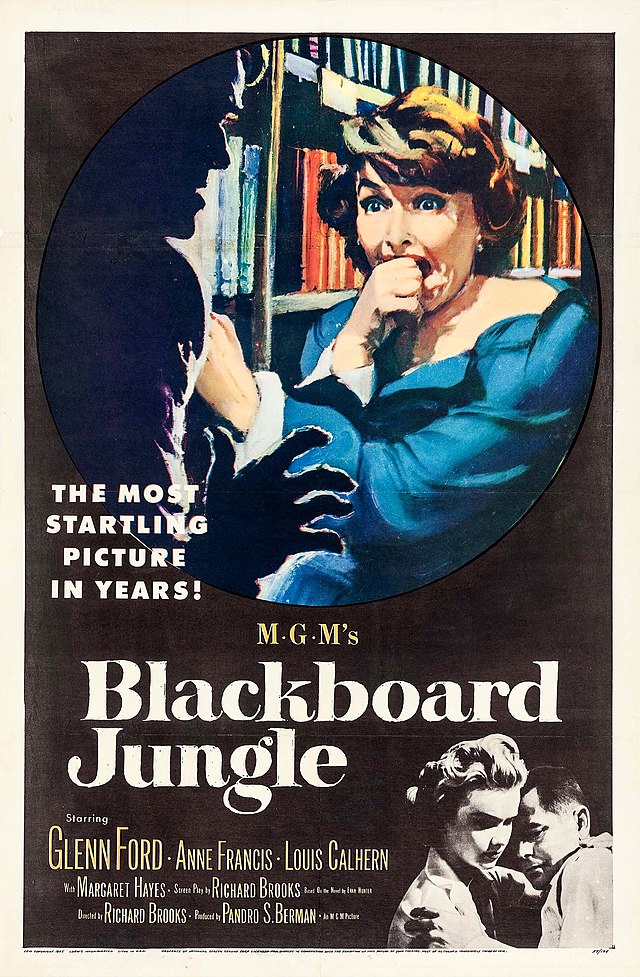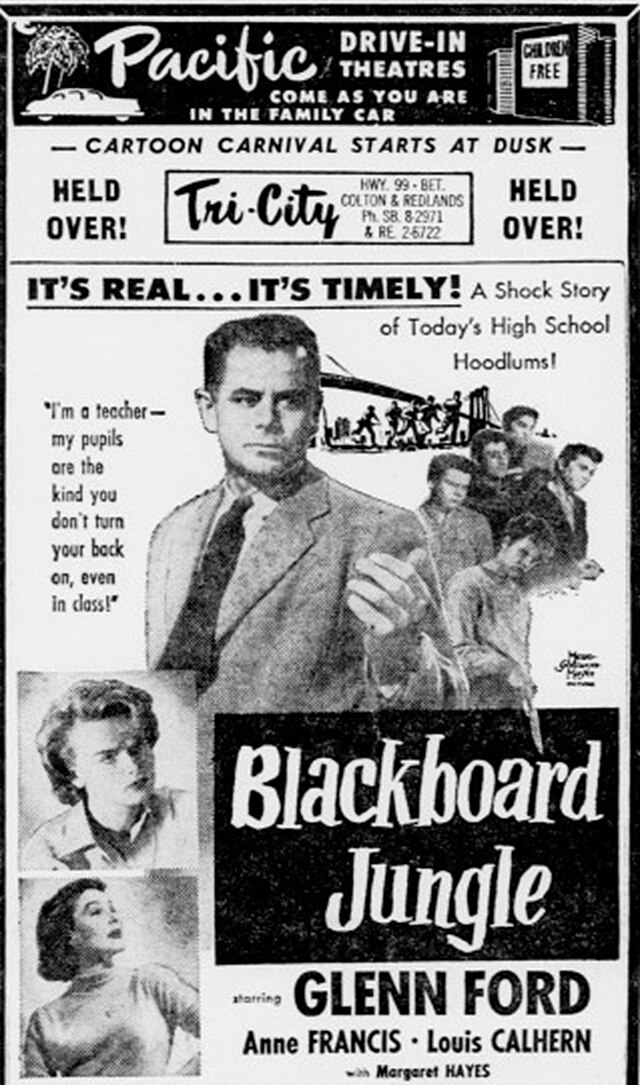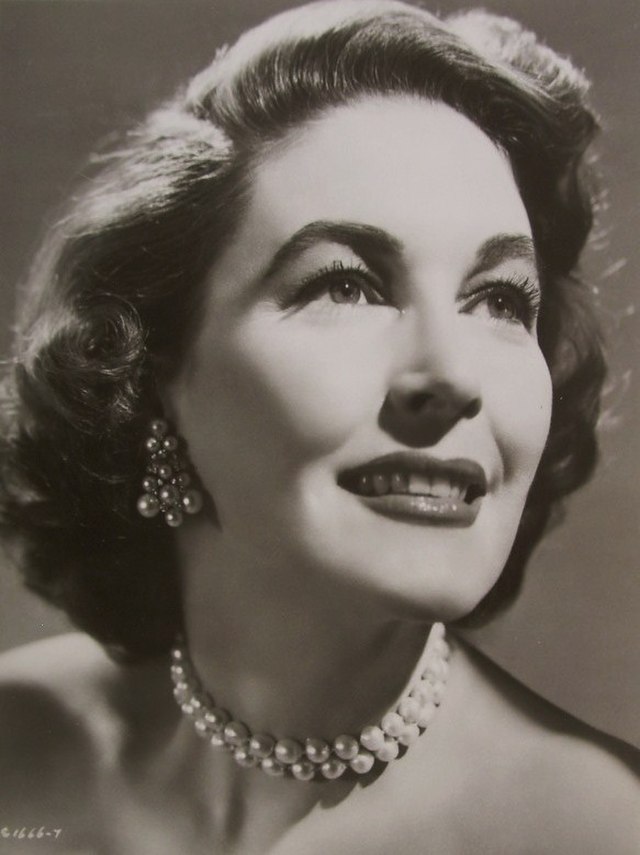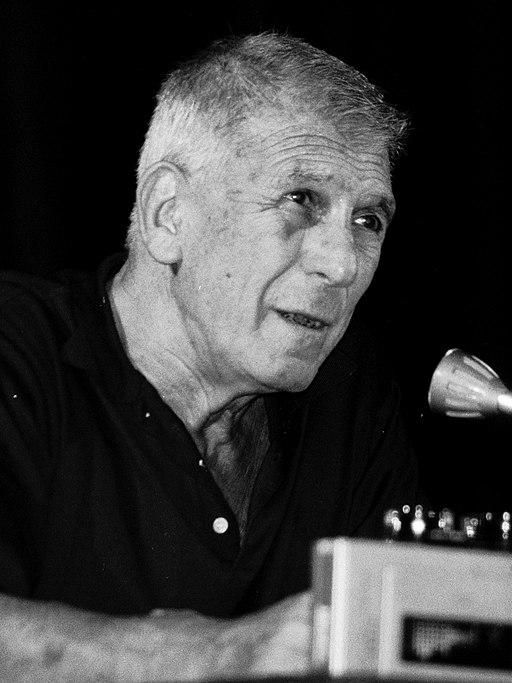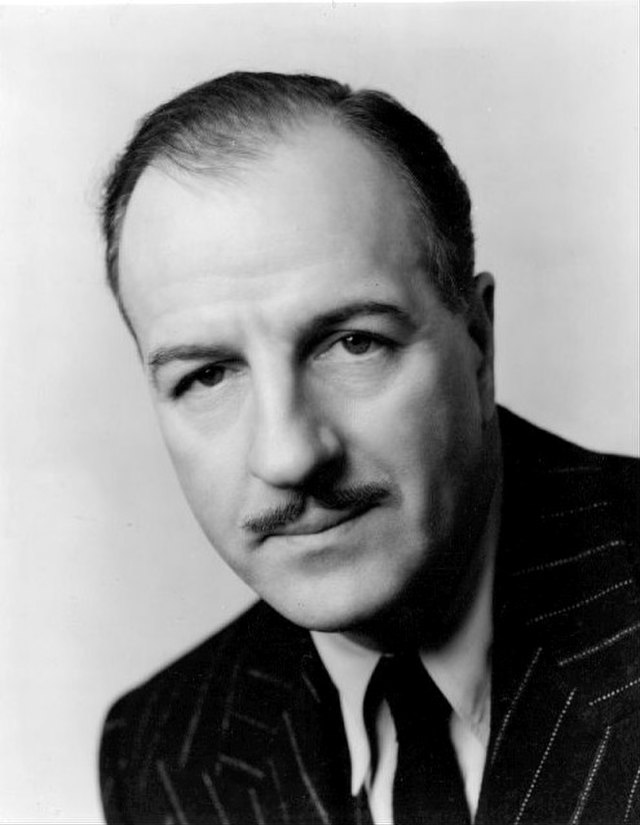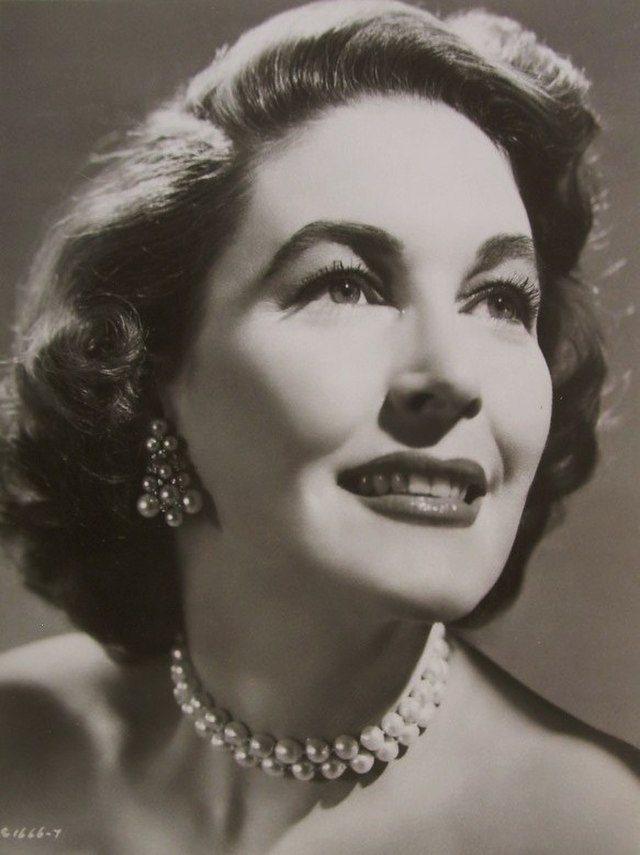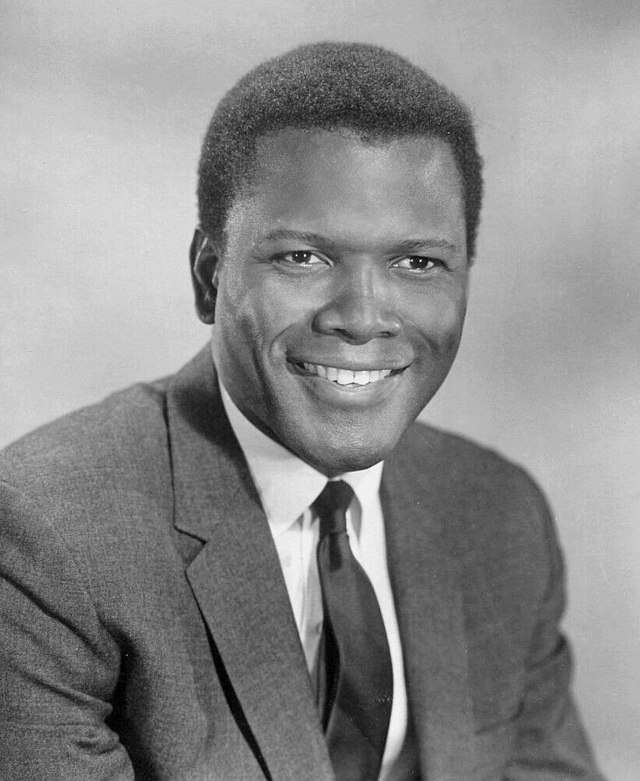Blackboard Jungle - 1955
back| Released by | Metro-Goldwyn-Mayer |
| Director | Richard Brooks |
| Producer | Pandro S. Berman |
| Script | Richard Brooks (based on the novel Blackboard Jungle by Evan Hunter) |
| Cinematography | Russell Harlan |
| Music by | Composed by Max C. Freedman and James Myers (including the hit song |
| Running time | 101 minutes |
| Film budget | $1 million |
| Box office sales | $8.1 million |
| Main cast | Glenn Ford - Anne Francis - Louis Calhern - Sidney Poitier - Margaret Hayes |
Blackboard Jungle
A Powerful Portrayal of a Teacher's Battle against Youth Rebellion in an Inner-City High School
Blackboard Jungle is a significant film of its era, noted for its depiction of juvenile delinquency and the struggles of a well-meaning teacher in an inner-city school.
It was groundbreaking in its use of rock and roll music, which helped propel "Rock Around the Clock" to fame. The film also marked an important early role for Sidney Poitier, highlighting themes of race and education in post-war America.
Related
Blackboard Jungle – 1955
Summary:
Blackboard Jungle, directed by Richard Brooks, is a gritty and influential drama that examines the challenges of teaching in an urban high school plagued by violence, disrespect, and delinquency. The film opens with the iconic sound of Bill Haley & His Comets' "Rock Around the Clock," immediately setting the tone for a story about youth rebellion and the cultural shifts taking place in America during the 1950s.
Plot Overview:
The story centers on Richard Dadier (played by Glenn Ford), a war veteran who takes up a teaching position at North Manual High School, an inner-city school notorious for its unruly students. Dadier, idealistic and determined, hopes to make a difference in the lives of his students, despite the warnings from colleagues about the harsh realities of the school environment.
From his first day, Dadier is confronted with the hostility and apathy of his students, who are largely uninterested in education. The classroom is dominated by troublemakers, notably Artie West (Vic Morrow), a tough and rebellious student who leads a gang that terrorizes both students and teachers. Another key student is Gregory W. Miller (Sidney Poitier), an intelligent and charismatic young man who initially resists Dadier's attempts to reach him but gradually becomes an ally.
Dadier's efforts to teach are met with resistance, not only from the students but also from his fellow teachers, who have become cynical and complacent. Jim Murdock (Louis Calhern), a jaded veteran teacher, and Joshua Y. Edwards (Richard Kiley), a music teacher with a more sympathetic approach, represent the contrasting attitudes within the faculty.
Tensions escalate when Dadier tries to assert control over his classroom. He faces verbal and physical threats from West and his gang, culminating in an assault that leaves him injured. Despite these challenges, Dadier refuses to give up. His persistence begins to earn him the respect of some students, including Miller, who sees in Dadier a rare figure of authority who genuinely cares about their future.
The situation reaches a boiling point when West and his gang vandalize the school and attack Dadier. In a climactic confrontation, Dadier confronts West, standing his ground and exposing West's cowardice in front of the other students. This moment marks a turning point, as the students start to see Dadier as a figure of strength and integrity. With West's influence weakened, Dadier is able to establish a more positive and controlled classroom environment.
The film ends on a hopeful note, with Dadier beginning to make headway in his efforts to educate and connect with his students, suggesting that change is possible even in the most difficult circumstances.
Analysis:
Blackboard Jungle is a seminal film that boldly addresses issues of juvenile delinquency, race relations, and the challenges of the American education system in the 1950s. It was one of the first Hollywood films to portray urban youth rebellion and the influence of rock and roll, marking it as a cultural milestone.
- Themes of Authority and Rebellion:
At its core, Blackboard Jungle is about the struggle for authority and the rebellion against it. Richard Dadier represents traditional authority, embodying values of discipline, respect, and education. His challenge is to assert his authority in a setting where these values are undermined by societal neglect and the allure of rebellion, represented by Artie West and his gang. The film reflects the growing generational divide of the 1950s, with teenagers increasingly rejecting the conformist values of their parents' generation.
- Portrayal of Education:
The film critiques the American education system, highlighting its failure to address the needs of inner-city youth. North Manual High School is depicted as a battleground where teachers are either overwhelmed or indifferent, and students are left to fend for themselves. Dadier's character serves as a beacon of hope, suggesting that committed and compassionate teachers can make a difference. However, the film also acknowledges the limitations and frustrations that educators face in such environments.
- Race and Integration:
Blackboard Jungle is notable for its depiction of race relations at a time when America was grappling with issues of segregation and civil rights. Sidney Poitier's character, Gregory Miller, stands out as a complex figure who challenges racial stereotypes. Miller's intelligence, leadership, and moral compass make him a central character who bridges the gap between the rebellious students and Dadier. His eventual alliance with Dadier highlights the possibility of overcoming racial prejudices through mutual respect and understanding.
- Cultural Impact:
The use of "Rock Around the Clock" as the film's opening and closing theme was groundbreaking, bringing rock and roll to mainstream audiences and signaling the rise of youth culture. The song's inclusion not only underscored the film's themes of teenage rebellion but also helped propel the genre to new heights of popularity. The film's release coincided with the early stages of the rock and roll revolution, and its success helped cement the association between the music and the youth counterculture of the time.
- Realism and Controversy:
Blackboard Jungle was praised for its realistic portrayal of the challenges facing inner-city schools and the gritty, almost documentary-style cinematography that captured the raw energy and tension of the environment. However, it also sparked controversy for its depiction of violence and delinquency, with some critics accusing it of sensationalizing the problems it sought to address. Despite this, the film was widely influential, inspiring a wave of similar films about troubled youth and delinquency.
Conclusion:
Blackboard Jungle remains a powerful and relevant film, resonating with audiences for its honest portrayal of the struggles within the education system and the complex dynamics between teachers and students. Its exploration of authority, rebellion, race, and the transformative power of education makes it a significant cultural artifact of the 1950s, reflecting the anxieties and hopes of a society on the brink of social change. The film's impact extended beyond the screen, influencing music, popular culture, and the way youth issues were addressed in the media.
Full Cast:
Main Cast:
- Glenn Ford as Richard Dadier
- Anne Francis as Anne Dadier
- Louis Calhern as Jim Murdock
- Sidney Poitier as Gregory W. Miller
- Vic Morrow as Artie West
- Margaret Hayes as Lois Hammond
- John Hoyt as Mr. Warnecke
- Richard Kiley as Joshua Y. Edwards
- Emile Meyer as Mr. Halloran
- Warner Anderson as Dr. Bradley
- Basil Ruysdael as the Judge
- Paul Mazursky as Emmanuel Stoker
- Jamie Farr (credited as Jameel Farah) as Santini
- Dan Terranova as Belazi
- Rafael Campos as Pete V. Morales
- Horace McMahon as Detective
Supporting and Minor Roles:
- Ruth Warren as Miss Brady
- Roberta Shore (credited as Jymme Shore) as Cathy
- Mickey Little as Student
- Danny Dennis as Edgar
- Martin Milner as Student (uncredited)
- Jerry Paris as Ted
- Richard Deacon as Mr. Beckley (uncredited)
- James Drury as Fred (uncredited)
- Michael Landon as Student (uncredited)
Trailer from Blackboard Jungle:
Analysis of Richard Brooks' Direction in Blackboard Jungle (1955)
Richard Brooks' direction in Blackboard Jungle is widely regarded as a landmark in American cinema, showcasing his ability to blend social commentary with gripping drama. His approach to directing this film not only brought the novel by Evan Hunter to life but also introduced audiences to a raw, realistic portrayal of inner-city life and the challenges of education.
Realism and Authenticity:
Brooks approached Blackboard Jungle with a commitment to realism, striving to authentically depict the struggles of teaching in a rough, urban high school environment. His use of gritty, almost documentary-style cinematography helped to ground the film in a sense of reality. By choosing real locations, such as a functioning high school, instead of relying solely on studio sets, Brooks added a layer of authenticity that was rare for films of that era. This realism extended to the behavior and language of the students, which, although toned down by contemporary standards, was shocking and provocative for its time. Brooks did not shy away from showing the violence, disrespect, and hostility that were part of the school’s daily life, which made the film's themes more impactful.
Pacing and Tension:
Brooks effectively used pacing to build and sustain tension throughout the film. He understood the importance of pacing in creating suspense, and he carefully structured the narrative to escalate conflict incrementally. The tension between the teachers and students, particularly the antagonistic relationship between Richard Dadier and Artie West, builds steadily, culminating in intense confrontations. Brooks managed to keep the audience on edge by alternating between scenes of confrontation and moments of uneasy calm. This ebb and flow of tension mirrored the unpredictable and volatile nature of the classroom environment, keeping the viewers engaged and invested in the outcome.
Character Development and Nuance:
Brooks' direction ensured that the characters in Blackboard Jungle were multi-dimensional, avoiding simple stereotypes. His focus on character development allowed for a deeper exploration of their motivations and conflicts. For instance, Richard Dadier is not portrayed as a flawless hero; he has his doubts, fears, and moments of vulnerability, making him relatable and human. Similarly, Gregory Miller, played by Sidney Poitier, is more than just a token minority character; he is a thoughtful, intelligent young man caught between the expectations of his peers and his desire to achieve something more. Even Artie West, the film’s main antagonist, is portrayed with a level of complexity, hinting at a troubled background and a sense of desperation that drives his rebellious behavior. Brooks' nuanced direction allowed these characters to resonate with audiences, making their struggles and conflicts more compelling.
Social Commentary:
Brooks used Blackboard Jungle as a vehicle for social commentary, addressing pressing issues of the 1950s such as juvenile delinquency, the role of education, and racial tensions. His direction brought these themes to the forefront without resorting to didacticism. Instead, he wove them into the fabric of the story, allowing them to emerge naturally from the characters’ interactions and the plot. The inclusion of a diverse cast, with Sidney Poitier’s character playing a significant role, was a bold move that highlighted the racial dynamics of the time. Brooks' sensitive handling of race relations was ahead of its time, providing a critical look at prejudice and the potential for understanding and cooperation. His direction encouraged audiences to reflect on these social issues, making the film not just entertainment but also a thought-provoking experience.
Innovative Use of Music:
One of Brooks' most innovative decisions was his use of contemporary music, specifically the rock and roll hit "Rock Around the Clock" by Bill Haley & His Comets. This was one of the first major Hollywood films to incorporate rock music, which was then emerging as a powerful symbol of youth culture and rebellion. By opening and closing the film with this song, Brooks not only captured the spirit of the times but also underscored the theme of generational conflict. The choice of music helped to set the tone of the film, immediately grabbing the audience's attention and aligning the film with the energy and angst of its teenage characters. This decision was groundbreaking and contributed to the film's cultural impact, making it a defining moment in the relationship between rock music and cinema.
Balancing Controversy and Mainstream Appeal:
Brooks skillfully balanced the controversial nature of Blackboard Jungle with elements that would appeal to mainstream audiences. He did not shy away from depicting the harsh realities of inner-city schools, including scenes of violence, sexual harassment, and racial tension. However, he handled these subjects with enough restraint to avoid alienating audiences or falling foul of censors. His direction ensured that the film was provocative and challenging but still accessible to a broad audience. This balance helped Blackboard Jungle become a commercial success and a critical milestone, influencing future films that dealt with similar themes.
Visual Style and Composition:
Brooks’ visual style in Blackboard Jungle was marked by his use of stark, high-contrast lighting and tight framing, which enhanced the film's sense of claustrophobia and tension. The school corridors and classrooms are shot in a way that makes them feel confining and almost prison-like, reflecting the characters' feelings of entrapment. Brooks' choice of camera angles and movements was deliberate, often emphasizing the power dynamics between teachers and students. For example, he would use low-angle shots to portray the intimidating presence of the students or high-angle shots to depict Dadier’s vulnerability. These visual choices helped to underscore the emotional undercurrents of the narrative and added to the film's overall impact.
Conclusion:
Richard Brooks' direction in Blackboard Jungle was instrumental in making the film a landmark of American cinema. His commitment to realism, nuanced character development, and ability to address social issues without sacrificing narrative engagement made the film both impactful and enduring. By skillfully balancing controversy with mainstream appeal, Brooks created a work that not only resonated with audiences of the 1950s but also continues to be relevant in discussions about education, race, and youth culture. His innovative use of music and visual style set a precedent for future films, marking Blackboard Jungle as a pioneering work that pushed the boundaries of what Hollywood could achieve in terms of storytelling and social commentary.
Glenn Ford's Performance in Blackboard Jungle
Glenn Ford's portrayal of Richard Dadier, the dedicated and idealistic teacher in Blackboard Jungle, is a central element of the film's success. His nuanced and believable performance effectively captures the struggles of a man caught between his commitment to education and the harsh realities of a failing school system. Here is a detailed analysis of Ford's performance and the qualities that made it so impactful:
Relatability and Grounded Presence:
One of the defining aspects of Glenn Ford’s performance is his ability to make Richard Dadier relatable and grounded. Ford plays Dadier as an everyman—a character who, despite his noble intentions, is not immune to doubt, fear, or frustration. Ford's natural, understated acting style allows the audience to see Dadier as a real person rather than a Hollywood hero. This relatability makes Dadier's journey more compelling, as viewers can easily empathize with his challenges and emotions. Ford's portrayal of Dadier's initial optimism, slowly giving way to disillusionment and then renewed resolve, feels genuine and mirrors the emotional arc that many teachers might experience in similar circumstances.
Emotional Range:
Ford demonstrates considerable emotional range in his portrayal of Dadier. Throughout the film, Dadier experiences a gamut of emotions—hope, anger, fear, disappointment, and finally, a tentative triumph. Ford handles these shifts with subtlety and precision. For example, in scenes where Dadier is confronted with the hostility of his students or the apathy of his colleagues, Ford effectively conveys a sense of inner conflict and frustration. His eyes and facial expressions reveal the internal struggle between his desire to make a difference and the realization of how difficult it will be. In moments of confrontation, such as when he faces off against the student gang led by Artie West, Ford brings a quiet intensity that underscores Dadier's courage and moral conviction without resorting to melodrama.
Portraying Vulnerability:
A significant strength of Ford's performance is his portrayal of vulnerability. Unlike traditional depictions of male authority figures in the 1950s, Ford’s Dadier is not invincible. He is shown grappling with real fears—fear for his safety, fear of failure, and fear of not being able to protect his pregnant wife from the stress his job brings into their lives. Ford brings a sense of vulnerability that humanizes Dadier, making his character's courage and determination all the more admirable. This vulnerability is particularly evident in scenes where Dadier is physically attacked or when he faces emotional strain at home. Ford’s nuanced handling of these moments allows the audience to see Dadier as a complex character, one who is deeply affected by his circumstances yet remains committed to his principles.
Interaction with Other Characters:
Ford's performance is marked by his strong interactions with the rest of the cast, particularly Sidney Poitier, Anne Francis, and Vic Morrow. His scenes with Poitier, who plays Gregory Miller, are particularly noteworthy. Ford conveys a sense of respect and genuine concern in his interactions with Miller, which helps to establish a believable rapport between the teacher and the student. The evolving dynamic between Dadier and Miller, from mistrust to mutual respect, is handled with subtlety, making their eventual understanding and alliance feel earned. Ford's chemistry with Anne Francis, who plays his wife, Anne, adds depth to his character, showing another side of Dadier as a loving husband. His concern for her well-being and the strain his job puts on their relationship are convincingly portrayed, adding to the stakes of Dadier's struggles. Ford's antagonistic interactions with Vic Morrow's character, Artie West, are charged with tension, highlighting the generational and moral conflicts at the heart of the film.
Physicality and Body Language:
Ford effectively uses his physical presence and body language to convey Dadier’s emotions and state of mind. He often adopts a posture that reflects the character's tension and unease, particularly in scenes where he feels threatened or challenged. His body language becomes more assertive in moments where Dadier takes a stand, such as when he confronts the students in the classroom or faces off against West. Ford's use of physicality is never exaggerated; instead, it complements his verbal performance, making his portrayal of Dadier feel realistic and believable.
Understated Heroism:
One of the most compelling aspects of Ford's performance is his portrayal of understated heroism. Dadier is not portrayed as a typical action hero; rather, his heroism lies in his persistence and moral courage. Ford embodies this through a restrained yet powerful performance, conveying that Dadier's real strength is his resilience and dedication to his students, even in the face of adversity. This portrayal aligns with the film’s realistic tone, making Dadier’s small victories feel significant and his character arc satisfying. Ford’s subtlety in conveying this aspect of Dadier’s character makes his performance memorable, showing that true heroism often lies in the ordinary acts of standing up for one’s principles.
Impact on Audience and Legacy:
Ford's performance had a significant impact on the film's reception and legacy. His portrayal of Dadier as a dedicated yet vulnerable teacher helped to highlight the importance of education and the real challenges teachers face, contributing to the film's social commentary. Ford’s role in Blackboard Jungle resonated with audiences, particularly educators, who saw in Dadier a reflection of their own struggles and aspirations. The film, and Ford's performance, contributed to the broader cultural discourse on education, delinquency, and the power of individuals to effect change within difficult systems.
Conclusion:
Glenn Ford’s performance in Blackboard Jungle is a masterclass in subtle, emotionally resonant acting. His portrayal of Richard Dadier is characterized by its realism, emotional depth, and the ability to convey complex themes through understated heroism. Ford’s nuanced approach allowed the character of Dadier to resonate with audiences as a symbol of perseverance and integrity. His performance remains a highlight of the film, contributing to its status as a seminal work in American cinema that explores the challenges and rewards of teaching in a troubled educational system.
Important Quotes from Blackboard Jungle (1955)
- Richard Dadier:
"I want you to learn. I want you to finish school. I want you to live up to your potential."
This line encapsulates Dadier’s motivation as a teacher, emphasizing his belief in the importance of education and his genuine desire to see his students succeed.
- Richard Dadier (to his class):
"You're gonna learn the way your father learned, and his father before him. If you think you're going to get through life by just sitting around listening to the radio, you're wrong."
Here, Dadier confronts the students' lack of interest in education, challenging their belief that they can coast through life without effort or learning.
- Joshua Y. Edwards:
"One day you get out into the world, and then you'll be able to see yourself the way you really are, instead of the way you've been taught to be."
This line from the music teacher offers insight into the broader theme of self-discovery and the idea that true learning comes from understanding oneself beyond societal expectations.
- Gregory W. Miller:
"Why do you try, Dadier? The others have quit. Why don't you?"
Miller questions Dadier's persistence, reflecting the skepticism and disillusionment of the students. This also sets up the conflict between idealism and resignation.
- Richard Dadier:
"You can’t get away with anything. Somebody’s always looking."
Dadier warns his students about the consequences of their actions, implying the presence of societal norms and moral standards that hold individuals accountable.
- Artie West:
"You won't get anything out of me, teach. I got a right to say nothing!"- Artie West’s defiant statement epitomizes the rebellious attitude of the delinquent students and their resistance to authority and education.
- Artie West’s defiant statement epitomizes the rebellious attitude of the delinquent students and their resistance to authority and education.
- Richard Dadier (to Anne Dadier):
"I don’t know if I’m doing any good. Sometimes I think I’m just banging my head against a stone wall."
This line reveals Dadier's doubts and internal struggle with the effectiveness of his efforts, showing the emotional toll of his teaching experience.
- Jim Murdock:
"You can’t make a silk purse out of a sow’s ear."
Murdock's cynical remark underscores the pessimistic attitude of some faculty members, who see the students as beyond redemption, contrasting with Dadier’s idealism.
- Richard Dadier (to Artie West):
"You’re a coward, West. A real coward. You don’t have the guts to fight fair, do you?"
Dadier confronts West's bullying tactics head-on, challenging his lack of integrity and exposing his cowardice, which becomes a pivotal moment in asserting Dadier's authority.
- Anne Dadier:
"I don’t want you to get hurt, Rick. It’s not worth it."
Anne expresses concern for her husband's safety and well-being, highlighting the personal sacrifices and risks involved in his commitment to teaching.
Notable Scenes from the Movie:
Opening Scene with "Rock Around the Clock":
Description:
The film opens with the sound of Bill Haley & His Comets' "Rock Around the Clock," playing over the credits as students gather outside North Manual High School. The camera captures the lively, rebellious energy of the teenagers, signaling a shift in youth culture.
Significance:
This scene is significant because it was one of the first times that rock and roll music was prominently featured in a Hollywood film. The use of "Rock Around the Clock" not only set the tone for the movie but also connected the narrative to the burgeoning rock and roll movement, aligning the film with youth rebellion and marking a generational shift. The choice of this upbeat, energetic song underscored the vibrancy and restlessness of the teenagers, immediately drawing viewers into the world of the film. This iconic use of music helped propel "Rock Around the Clock" to the top of the charts, highlighting the powerful influence of cinema on popular culture.
The Classroom Chaos Scene:
Description:
In one of Dadier's early classes, chaos erupts when the students begin to ignore him, talking loudly and creating a ruckus. Richard Dadier (Glenn Ford) tries to maintain control, but the students, led by Artie West (Vic Morrow), continue to mock him. Eventually, Dadier angrily slams a chair onto a desk to get their attention.
Significance:
This scene effectively sets up the main conflict of the film—Dadier's struggle to establish authority and order in a classroom filled with disinterested and rebellious students. The scene highlights the disrespect and challenges that teachers face, especially in an environment where students feel disconnected from the education system. Ford’s portrayal of Dadier’s frustration and his eventual outburst of anger illustrate the emotional toll that this environment takes on educators. The scene is a powerful visual representation of the clash between traditional authority and teenage rebellion, a central theme of the film.
Gregory Miller's Solo Scene:
Description:
During a music class led by Joshua Y. Edwards (Richard Kiley), Gregory Miller (Sidney Poitier) stands up to perform a solo rendition of the song "The Halls of Montezuma." His performance is initially met with skepticism by his peers, but his confident and powerful singing soon wins them over.
Significance:
This scene is a turning point for Gregory Miller’s character and his relationship with both the teacher and his classmates. It showcases Miller's talent and leadership qualities, setting him apart from the other students. Poitier’s performance brings depth to Miller's character, highlighting the internal conflict between his rebellious facade and his underlying potential and desire for something more. The scene also underscores the theme of finding common ground through shared experiences, in this case, music. It illustrates the idea that students, no matter their background or behavior, have talents and strengths that can be nurtured with the right guidance.
The Assault on Lois Hammond:
Description:
Lois Hammond (Margaret Hayes), a young teacher at the school, is attacked by a group of students, an event that deeply shocks the faculty. Richard Dadier confronts the students about the assault, and Artie West mocks him, suggesting that the teachers are powerless to control them.
Significance:
This scene is one of the most intense and disturbing moments in the film, highlighting the dangers that teachers face in such a hostile environment. It underscores the theme of the powerlessness of authority figures in the face of unchecked delinquency. The assault on Hammond serves as a wake-up call to Dadier and reinforces his determination to stand up to the bullies, despite the risks involved. This scene is pivotal in depicting the reality of violence in schools and the impact it has on both teachers and students.
The Final Confrontation between Dadier and West:
Description:
The film’s climax comes when Richard Dadier confronts Artie West in the classroom after learning that West and his gang are planning further violence. Dadier stands up to West, calling him a coward and exposing his intimidation tactics. The confrontation escalates into a physical fight, with Dadier ultimately disarming West and asserting his authority.
Significance:
This climactic scene is crucial because it represents the culmination of Dadier’s struggles and his ultimate victory over the forces of rebellion and anarchy. It is a powerful moment of catharsis, both for Dadier and the audience, as he finally stands up to the primary antagonist and takes control of the classroom. This scene highlights the theme of moral courage and the importance of standing up for one’s principles, even in the face of danger. Ford’s performance in this scene is intense and convincing, portraying Dadier as a determined and courageous figure who refuses to be intimidated. The resolution of this conflict marks a turning point, suggesting the possibility of positive change within the troubled school environment.
Dadier's Speech to the Class:
Description:
After the final confrontation, Dadier gives a speech to his students, urging them to take their education seriously and warning them about the dangers of wasting their potential. He speaks about the importance of making the right choices and how those choices will affect their futures.
Significance:
This scene is a heartfelt appeal from Dadier to his students, reflecting his deep concern for their welfare and his belief in their potential to succeed. It encapsulates the film's central message about the value of education and the importance of personal responsibility. Ford’s delivery of this speech is sincere and earnest, underscoring Dadier’s dedication and commitment to his role as a teacher. The scene serves as a hopeful note, suggesting that despite the challenges, positive change is possible when individuals take responsibility for their actions and make the effort to improve their lives.
Awards and Nominations for Blackboard Jungle (1955)
-
Academy Awards (Oscars) 1956:
Nomination: Best Writing, Screenplay
Nominee: Richard Brooks
Category: Best Screenplay (based on material from another medium)
-
British Academy Film Awards (BAFTA) 1956:
Nomination: Best Film from any Source
Category: Best Film from any Source
-
National Board of Review (NBR) 1955:
Winner: Top Ten Films
Category: Listed among the Top Ten Films of 1955
-
New York Film Critics Circle Awards (NYFCC) 1955:
Nomination: Best Director
Nominee: Richard Brooks
Category: Best Director
-
Directors Guild of America (DGA) 1956:
Nomination: Outstanding Directorial Achievement in Motion Pictures
Nominee: Richard Brooks
Category: Outstanding Directorial Achievement
Additional Recognition:
- Although Blackboard Jungle did not receive a vast number of awards, it was highly influential and critically acclaimed for its bold portrayal of social issues such as juvenile delinquency and its groundbreaking use of rock and roll music. The film's cultural impact was significant, sparking discussions about youth rebellion and influencing future films on similar themes.

